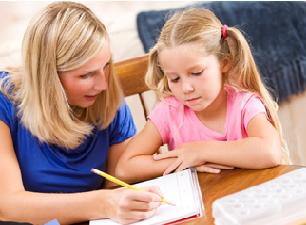
Broadly speaking examination results should be treated as a spring board to future achievements and better prospects. Examination results can cause a great deal of anxiety to the students and parents alike. However, a consistent family support system can be of help.
Students do fail exams and failure does matter. Even though end-of-course marks for many degrees no longer depend entirely on exams, exam performance still counts. When exams are important then failure is an issue. Where exams matter, then resits at the end of the summer are the reality for some students.
Here are few tips for parents on How to deal with your Children and their examination results.
Parents should look out for the following signs:
- Physical symptoms,such as sleeping or eating more or less than usual
- Mental symptoms,such as loss of concentration and interest
- Emotional symptom such as tears, tantrums, panic attacks
- Addictive symptoms,such as excessive drinking or smoking or using pills
- Self depreciating comments like"I knew I'll never pass or never do well or...Mohit's much brighter than me........."
Must Dos for parents:
- Do not nag the child. Be supportive and encouraging. Help the child to develop self-discipline, self-direction, self-confidence and a sense of achievement. Just good schooling and tuition are not substitutes for emotional cushioning. Help the child in maintaining his confidence especially when he seems discouraged by his dropping marks or grades.
- Do not displace your anxiety on the child. The achievement goals should be realistically set according to the child's capability. Praise the child when he does well. Encourage the child's performance with positive statements like, "well done", "you can do better", rather than saying "that was not enough".
- Do not harp on previous failures or results. If achievement expectations are too high it may lead to greater anxiety.
- Humor relieves tension. Be light and humorous with the child. Try to gain your child's confidence and discuss problems. Help to find a solution.
- Exams are not the end of the world. Accept that expectation for every one to do well is unrealistic. Involve the child in decision making.
- Be aware of the market demands and do not concentrate on traditional courses alone. This will narrow down the options considerably and cause stress.
- Many students do better after school because of maturity and greater focus, course of interest, rise and awareness level and exposure to options.
- Avoid criticizing or comparing the child with others. Make the child feel important and loved.
- Listen to your child.Take help of a professional counselor in case of a conflict or depression over the result.
Do's and Don'ts for Teachers and Parents
Do's:
- Discourage the Behaviour.
- Keep communication channels open
- Talk about the negative and long-term effects.
- Teach (quick) relaxation/breathing
- Teach anger management
- Teach him/her to evaluate consequences.
- Talk about the need for sharing information.
Don'ts:
- Do not punish or reprimand harshly.
- Do not moralize or make person feel guilty. Help him/her to think of it as a problem needing help.
- Assertively say ‘No' to the demand for taking cough syrup, pills etc. to
- relieve anxiety or improve concentration. Even short-term, temporary relief with the help of these drugs should be highly discouraged.
- Do not prescribe medication.
Must Know - for Parents.
Handling Suicide: A lot many suicides are impulsive while others are well planned. Impulsive students are likely to decide on the spur of the moment. Hence it is important to buy time.
Common feelings in suicide
- A crisis that causes intense suffering and feeling of hopelessness and helplessness.
- Conflict between survival and unbearable stress.
- Narrowing of patient's perceived options.
- A wish to escape.
- To punish self and/or to punish others with guilt.
- Indicators for increased chance for suicide:
- Withdrawal Behaviour for few days
- Mention of suicide repeatedly.
- Suicide note
- Changes in eating and sleeping patterns.
- A history of serious psychological problems.
- A history of impulsive, poorly controlled and destructive Behaviour.
- A history of continuing academic problems and learning difficulties.
- Adjustment difficulties with family, school, peers etc.
Interventions:
- The student should be advised to contact a professional counselor as soon as possible.
- Efforts should be made to encourage him/her to talk.
- A student who is severely depressed and expresses absolute helplessness about future is more at risk than a student who talks about casual things.
Must Read For Students: FAILURE in Exams is NOT the End of the World. Learn how to face it.



 Click it and Unblock the Notifications
Click it and Unblock the Notifications



























